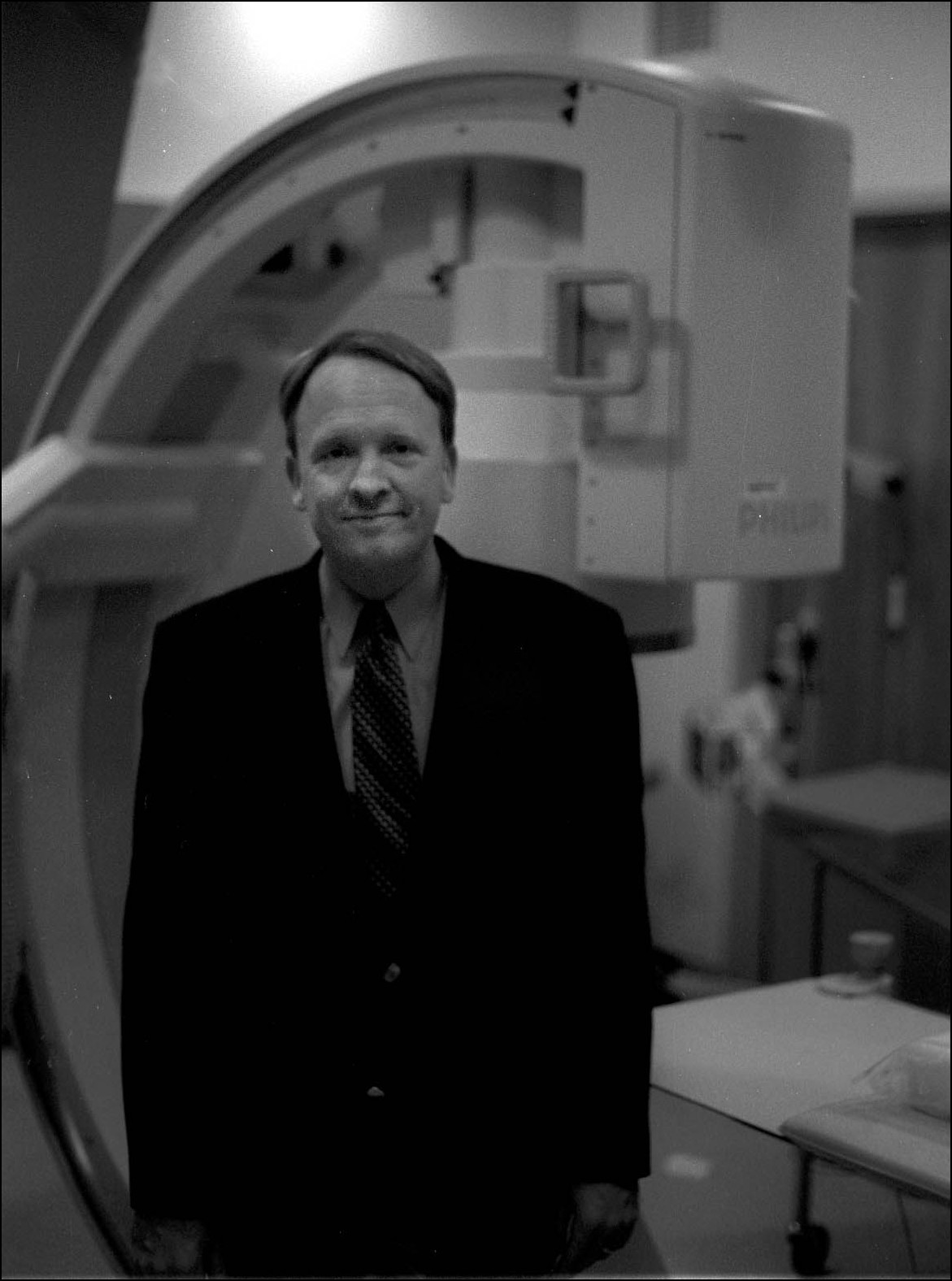Doctors have to learn their trade from someone. Medical school is much more than several years of absorbing text books in meticulous detail in preparation for an examination. Future doctors have to be supervised by medical professionals to ensure they are progressing towards the proper direction in treating human beings. Multiple choice or essay examinations do not suffice when learning the vast complexities of the medical profession.
Dr. Greg Postel is the chairman of the radiology department at the University of Louisville medical school. Part of his professional responsibilities entail instructing residents in the medical school who wish to narrow their focus of practice to radiology. Primarily, radiology is the use of medical instruments, such as x-rays, MRI’s and CT scans, to diagnose ailments, largely those of the brain.
After receiving a bachelor’s degree in chemistry from the College of Wooster in his native Ohio, Dr. Postel went to medical school at the Case Western Reserve in Cleveland. He then completed his residency in radiology at the Cleveland Clinic. He furthered his studies in radiology where he studied neuroradiology at the Mayo Clinic in Minnesotta. Neuroradiology is a more in-depth study of radiology, thus allowing the physician to perform more tasks a regular radiologist can not.
Dr. Postel was a member of the Mayo Clinic faculty for a few years before he joined the faculty at the University of Louisville in June of 1994. Dr. Postel says he was looking at jobs around the country before he came to U of L. One of the reasons for his coming to Louisville was that he knew another physician here. He says he enjoys living in Louisville and is grateful of his choice. Dr. Postel’s responsibilities at U of L are “a little bit of everything”. He estimates that “a little more than half [of his duties] is for patient care”. So, just like any other doctor, he spends part of his time treating patients. His remaining responsibilities are those that most doctors do not have. He instructs medical students, has administrative duties for the medical school and conducts research. He teaches medical students, on average, “a couple hours a day”, or, about “ten to fifteen hours a week”. His teaching duties do not include grading essay or scan-tron tests. The teaching and testing in medicine is more hands on. It is a pass/fail system of monitoring a student’s progress, in this case, their aptitude of the intricate diagnosing of ailments in radiology. A student must also present a case presentation that is supervised by the medical school faculty. Dr. Postel says he does not think they have ever failed a student, for all medical students are already “extremely bright” and have the mental capacity to breeze through the rigorous M-CATS. Also, radiology is not a required field in the medical school curriculum, so most students already have a prior interest in the subject.
He says he spends “about 95%” of his time at the University’s hospital in downtown Louisville. Other hospitals he works at include, what he calls “satellite facilities”, the Veterans Affairs hospital off Zorn Avenue and the Brown Cancer Center. Dr. Postel says he enjoys the aspects of “academic medicine” (working for university medical centers) and enjoys working for U of L. He has no interest to fully devote his time to private practice because he would “miss working with the residents”.
Dr. Postel has several interests outside of medicine. He is a music buff, primarily classical and jazz. He plays the piano. He is the vice-president of the Louisville Orchestra. He is a fan Chopin. Such refined tastes are expected from someone whose primary interests are those of the academic and scientific nature. I doubt he would be a fan of Slayer.






